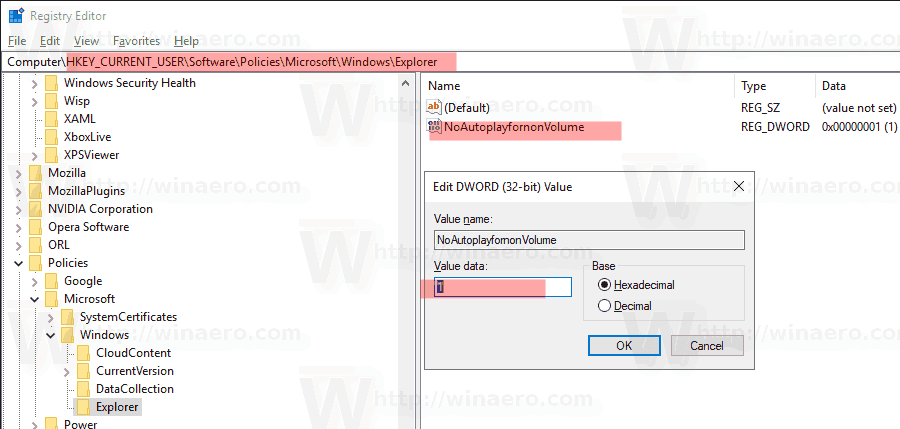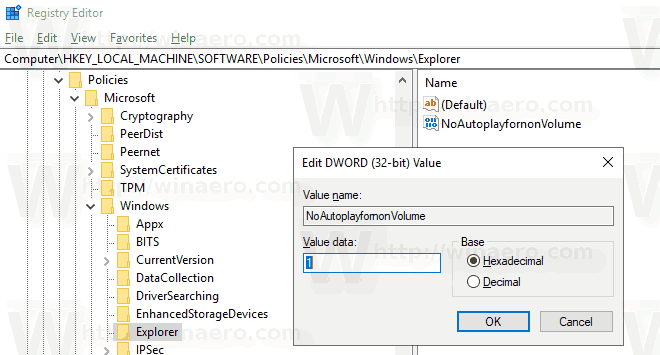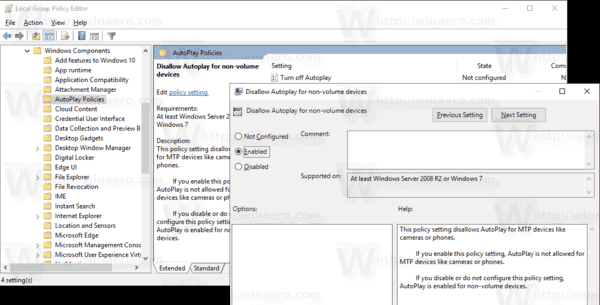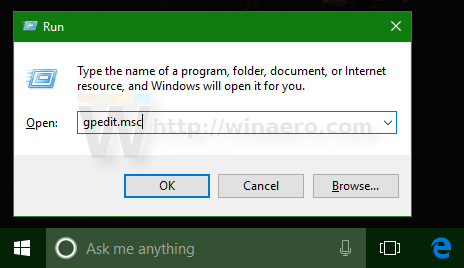In Windows 10, there is an option to disable the AutoPlay feature for non-volume devices, such as cameras and phones. Today, we will review two methods you can use to disable it.
Advertisеment
What is AutoPlay
AutoPlay is a special feature of the shell which allows the user to quickly pick a desired action for various media types you have connected or attached to your computer. You can configure it to open your favorite image viewer app when you insert a disk with photos, or launch a media player app automatically for your drive containing media files. It saves your time, since the required app starts automatically every time you connect your device or insert your disk.
How to disable AutoPlay
If you find no use for the AutoPlay feature, there are a number ways to enable or disable AutoPlay. It can be done using Settings, the classic Control Panel or the Registry. Also, there is a special Group Policy option that can be used to force enable or force disable the AutoPlay feature for all drives in Windows 10. The policy can be applied to all user accounts registered on your computer, or to the current user account only.
For reference, see the following articles:
Disable AutoPlay for non-volume devices
Finally, you can disable AutoPlay for non-volume devices. This can be done with either Group Policy or a Registry tweak. The restriction can be applied to all user accounts or to the current user account only.
To disable AutoPlay for non-volume devices in Windows 10, do the following.
- Open Registry Editor.
- Go to the following Registry key:
HKEY_CURRENT_USER\Software\Policies\Microsoft\Windows\Explorer
Tip: See how to jump to the desired Registry key with one click.
If you do not have such a key, then just create it.
- Here, create a new 32-bit DWORD value NoAutoplayfornonVolume. Note: Even if you are running 64-bit Windows, you still need to use a 32-bit DWORD as the value type.
Set it to 1 in decimals to disable AutoPlay for non-volume devices.
- To make the changes done by the Registry tweak take effect, you need to sign out and sign in again to your user account.
Later, you can delete the NoAutoplayfornonVolume value to unblock the AutoPlay feature for non-volume devices.
You are done.
Disable AutoPlay for Non-volume Devices for All Users
To disable AutoPlay for all devices for all users, ensure that you are signed in as Administrator before proceeding.
- Open Registry Editor.
- Go to the following Registry key:
HKEY_LOCAL_MACHINE\Software\Policies\Microsoft\Windows\Explorer
Tip: See how to jump to the desired Registry key with one click.
If you do not have such a key, then just create it.
- Here, create a new 32-bit DWORD value NoAutoplayfornonVolume. Note: Even if you are running 64-bit Windows, you still need to use a 32-bit DWORD as the value type.
Set it to 1 in decimals to disable AutoPlay for non-volume devices.
- Restart Windows 10 to apply the restriction, and you are done.
Download Ready-to-use Registry files
To save your time, I made the following ready-to-use Registry files. You can download them here:
The undo tweak is included.
Disable AutoPlay for Non-volume Devices with Gpedit.msc
If you are running Windows 10 Pro, Enterprise, or Education edition, you can use the Local Group Policy Editor app to configure the options mentioned above with a GUI.
Do the following.
- Press Win + R keys together on your keyboard and type:
gpedit.msc
- Group Policy Editor will open. Go to
User Configuration\Administrative Templates\Windows Components\AutoPlay Policies. Enable the policy option Disallow AutoPlay for non-volume devices.
Disable AutoPlay for Non-volume Devices For All Users with Gpedit.msc
- Press Win + R keys together on your keyboard and type:
gpedit.msc
- Group Policy Editor will open. Go to
Computer Configuration\Administrative Templates\Windows Components\AutoPlay Policies. Enable the policy option Disallow AutoPlay for non-volume devices.
Articles of interest:
- Backup AutoPlay Settings in Windows 10
- How to Disable or Enable AutoPlay in Windows 10
- Disable AutoPlay for All Drives in Windows 10
Support us
Winaero greatly relies on your support. You can help the site keep bringing you interesting and useful content and software by using these options:

